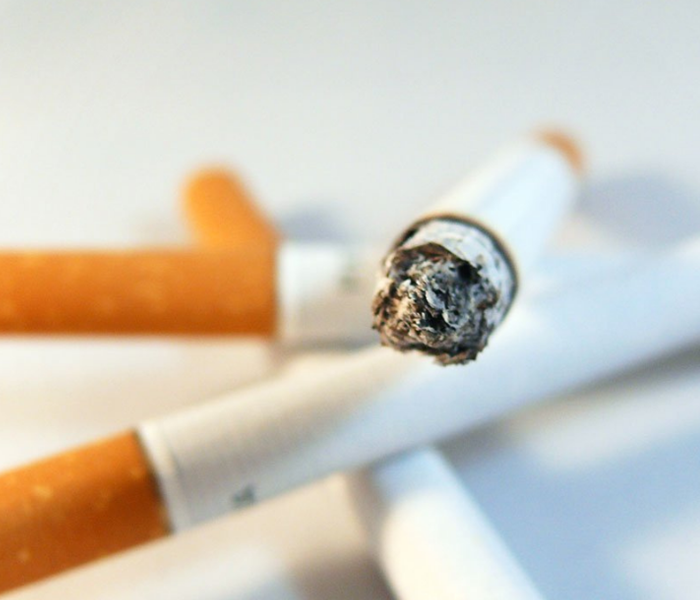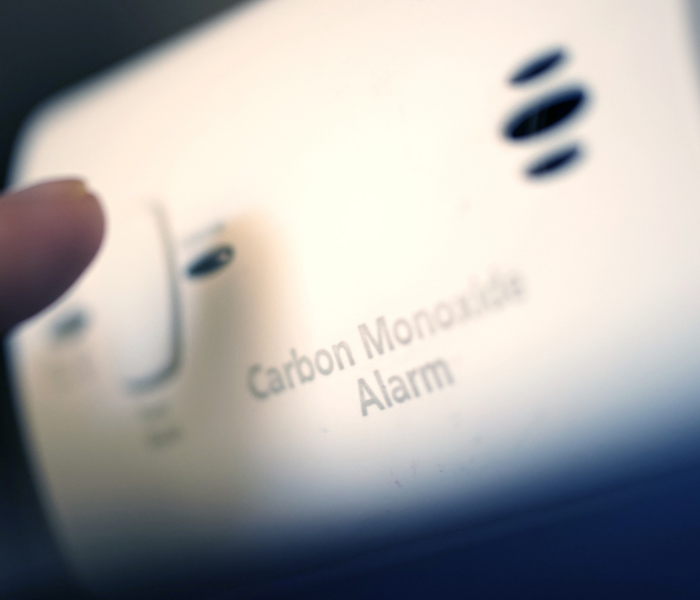Removing Tobacco Odor From Your NOLA Home
4/12/2022 (Permalink)
After years of smoking in a home, walls and contents become blemished and develop bad odors, and professional cigarette smoke odor removal is often necessary. Cigarette smoke also penetrates more odor-absorbing objects, such as carpets, upholstery, bedding, clothes, and many more.
Additionally, the HVAC system of a building carries the smoke odor and chemicals throughout the structure. The affected surfaces will become unpleasant to look at and the odors may disturb many people.
Ultimately, tobacco residue is extremely hard to remove and requires professional equipment and services. But, if you want to DIY, here are a few tips for cigarette smoke odor removal.
DIY Cigarette Smoke Odor Removal from Homes
To eliminate cigarette smoke odor, you must thoroughly clean the tobacco smoke residue from every surface and corner in the home:
- First, open all windows and doors to let as much fresh air in as possible.
- Clean or replace the air filters, furnace filters, and AC filters.
- Clean walls and ceilings using products with ammonia and glycol — two ingredients that neutralize bad odors. Let the walls dry and check if the odor persists.
- If you can still smell cigarette odor after cleaning, repaint the walls and ceilings with latex paint. Use a sealant designed to lock in odors before painting.
- Clean everything in the home: floors, windows, carpets, furniture, upholstery, draperies, blinds, and other household surfaces, fixtures, and items.
Short-term, less expensive, cigarette odor removal solutions
- Use an air purifier in your home.
- Sprinkle baking soda on the carpets, leave it overnight to absorb bad smells, and vacuum it the next day.
- Place saucers of white vinegar/ coffee/ activated charcoal/ citrus peels around the house and leave them overnight to neutralize the smell.
- Get indoor plants which can absorb up to 87% of indoor pollutants.
- Use scented or non-scented candles.
Completely removing cigarette smoke odor from a home is a very time-consuming and complicated process. If the situation is severe, call a professional smoke remediation specialist, such as SERVPRO of New Orleans Uptown & Mid-City, to remove the odor. We provide complete smoke cleaning and sanitation, professional deodorization, as well as duct cleaning services.
Preventing Carbon Monoxide Poisoning in Your New Orleans Home
4/13/2021 (Permalink)
Carbon Monoxide is an odorless, tasteless, and colorless gas. It can cause severe health problems and even death to unsuspecting people in their homes. This deadly gas exists in combustion fumes that result from burning fuel (gas, wood, propane, etc.) in various appliances and machines. Those include stoves, fireplaces, gas ranges, lawnmowers, electric generators, cars, and more. Here are some tips to prevent CO poisoning in your New Orleans home.
- Have your heating system, water heater, and any other gas, oil, or coal-burning appliances inspected and/or serviced at least once a year by a certified professional.
- Never use gas ranges or ovens to heat your home. Also, don’t use gas camp stoves or charcoal grills indoors. Using these can cause a buildup of CO inside your home, cabin, or camper.
- Don’t use portable flameless chemical heaters (catalytic) indoors. Although these heaters don’t have a flame, they burn gas and can cause CO to build up in your home.
- Be careful when using gas-powered electric generators. Never use them in your home, basement, or garage, and keep them at least 20 feet from windows, vents, or doors.
- When buying gas equipment, be sure to check for the seal of a national testing agency like Underwriter’s Laboratories.
- Make sure to vent gas appliances properly:
- Indoor vent pipes should go up slightly as they go toward the outdoors. Doing this will help prevent CO or other gases from leaking if the joints or pipes are not adequately tightened or affixed.
- Never patch a vent pipe with tape, gum, or anything else. This kind of patch can make CO build up in your home.
- Keep the vents for the stove, fireplace, dryer, and furnace clear of snow during and after a snowstorm.
- Have your chimney checked for soot, debris, and corrosion at least once a year. Hire a chimney sweep to clean your chimney annually.
- When the fireplace is in use, open the flues. Close your fireplace or damper only when the fire is completely out.
- Never idle your vehicle inside a garage that’s attached to the house or living space, even if you leave the door open. Have a mechanic inspect your vehicle’s exhaust system once a year to prevent CO build-up.
- If you drive a vehicle with a tailgate — when opening the tailgate, open vents or windows to make sure the air is moving through your car. If only the tailgate is open, CO from the exhaust will pull into the car.
- Install CO alarms in your home.




 24/7 Emergency Service
24/7 Emergency Service

